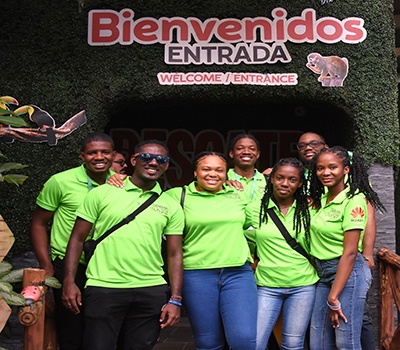Technology giant Huawei's educational exchange programme, Seeds for the Future, has benefitted hundreds of tertiary level students from across the globe for many years.
Jamaica has also been a beneficiary with numerous students taking the trek to China each year.
Due to the pandemic the programme went virtual but now has returned to its usual format. Hosted in San Jose Costa Rica October 9 to 16, the most recent Seeds of the Future programme was a massive success with 95 students from Central America and the Caribbean embarking on a journey to training in technological skills.
Of particular note, was the Jamaican contingent of students from the University of the West Indies (UWI) and the University of Technology (UTech), who impressed with their Tech4Good presentation on a cardio pulse connect device, a wireless heart monitoring invention on Monday October 16. It is hoped the device will be shared on the world stage. The idea to create the device came from Donniver Haughton, a 21 year old student who was recently diagnosed with athlete's heart (AHS). Haughton wanted to find a method to alleviate debilitating heart related illnesses along with four others from the UWI and three students from the UTech.
"I can benefit from first hand experience seeing that I have a heart condition. I want to see this being fulfilled so that people can use the technology that will be better for their health. I believe the technology is already out there that can make this happen," Haughton said.
The device is projected to cost US$5000 and is designed with a free to download app and artificial intelligence. It is hoped that the device will be made available within the next five years, globally. The group hopes to tap into charitable organizations for funding.
"I think that Jamaica is able to use the developing 4G that Huawei has brought to improve on what we are doing and it can put the country in the limelight again," he asserted.
In addition to Jamaica, students from Panama, Guatemala, Trinidad and Tobago, Dominican Republic, Venezuela, Honduras, Costa Rica and Suriname were included in the Seeds for the Future programme.

